MAVEN PROFILE
Heidi Zak – Fitting women with more comfortable bras
-
Name of Business
ThirdLove -
Product/Service
Great-fitting, beautiful and comfortable bras -
Year Launched
2013 -
Home Base
San Francisco, CA -
Website
ThirdLove
YOUR DISCOUNT CODE IS WAITING
Login to see your discount code to ThirdLove.
LOGINHeidi Zak, Co-founder & Co-CEO of ThirdLove, forges a new path for better-fitting bras
- Why did you decide to start your own business? Was there a problem you were trying to solve? Seven years ago, I needed a bra for a last-minute event, so I headed to Victoria’s Secret. It’s where I usually shopped, but this time was different. Nothing about the experience felt right. The pink velour, the intense smells, and the oversexualized images of “perfect” women and the bras that just didn’t fit that well...all I could think about was wanting to buy from a brand I believed in. At the time, the other option for bra buying was department stores. Their bras were more functional for sure, but not exactly beautiful and the experience of being fitted was no fun at all. My dream was to come up with a third way, a better way.
- Did you know from early on (for example, since childhood or college) that you wanted to start your own business, or was your decision unexpected? This decision was more unexpected. I grew up wanting to be a broadcast journalist, like Katie Couric. I actually wrote a paper about her when I was younger, and my mom is still on the lookout for it to share with Katie now that she’s an Investor with ThirdLove.
- After coming up with your concept, what was the very first action you took? My husband and I both quit our jobs and started ThirdLove in our living room. Ra’el Cohen, our Chief Creative Officer, and I then spent most of the next two years perfecting our best-selling 24/7™ Classic T-Shirt Bra. In the beginning, all I could think of was wow, I hope we made the right choice putting all our eggs into this one basket, but if we hadn’t taken that big step, we wouldn’t have been able to create ThirdLove.
- What do you recommend others who want to start a business do first? Build a solid network early and meet as many people as you can from other startups. Don't recreate the wheel! Use your contacts to ask questions, get advice, for introductions and for hiring. I have saved a lot of time and potential headaches from leveraging the knowledge of others and am happy to do the same for other founders.
- What about funding how did you pursue it? Did you go to your family at first? Friends? Investors? Keep your relationships warm because you never know who you might be sitting next to. For example, I ended up meeting Patrick Chung of venture capital firm NEA at a dinner party, told him about ThirdLove, and he led both initial seed rounds for the company.
- What were some of the challenges you faced starting your business for example, is there anything specifically challenging about the garment/fashion business? Were there moments you wanted to give up? I heard “no” a lot, especially those first few years from manufacturers, venture capitalists, and potential partners. But the no’s didn’t stop us, they made me stronger. We poured our hearts and souls into creating a beautiful bra that fits so well, women forget they’re even wearing it. Our bras are designed to make women feel confident and supported, so they can go run the world.
- Research shows that women receive only a tiny fraction of venture capital funding. Have you experienced any gender-related business challenges? I can’t tell you how many male investors looked the other way when I began pitching a bra company to them. As a female CEO, I hope to inspire other women to take a risk and build something. I angel invest in early-stage, female-founded companies to help them get off the ground since I know the challenges of venture capital funding.
- What has been most exciting for you so far? I get notes from all kinds of women, some of whom are in their 70s, who are thrilled that they are wearing a bra that fits for the first time in their lives. It drives home how important our mission is to women of all shapes, sizes, and ages.
- What do you see as the essential qualities an entrepreneur needs to be successful? Come to terms with the fact that you might not be able to take on everything yourself, and keep your mission at the front of your mind for every decision you make. For example, we’re laser-focused on getting every woman into a great-fitting bra, so that has to be at the forefront of my mind when making important business decisions.
- What are some examples of work activities you do on a daily basis? Read and respond to too many emails to count, take meetings, inform decisions. Every day is a little different, and sometimes I’m working at ThirdLove HQ and other days I’m speaking on a panel.
- What are some things that the entrepreneurial process has taught you that you can't learn in the classroom? In the beginning of the company, we had thousands of positive reviews from very happy customers, but we struggled to get our product in the hands of even more women. We knew we had a superior product, but we needed to convince women to take a chance on ThirdLove. Textbooks would tell you we did everything right, but even then, women weren’t buying. Sometimes you can do everything right and still not get the success you’re looking for.
- How has having an MBA benefitted you as an entrepreneur? It has helped me with making business decisions and gave me a solid foundation to start a company, but nothing teaches you how to be an entrepreneur and building something like just doing it.
- How do you define success? Starting this company and running it is my definition of success because it represents who I am, someone who is constantly pushing my own boundaries, and defying the status quo set by society and culture.
- If you could only offer ONE piece of advice to women who are considering starting a business, what would it be? Build a solid network early, meet as many people as you can. As you progress in your career, your contacts are everything.
- Entrepreneurs are busy people. What do you do for fun when not being a boss? I like to keep moving I’m game for any athletic challenge. I also run around and spend quality time with my two kids, who are 3 and 6.
-
Any book recommendations?
Trillion Dollar Coach has so many amazing takeaways. Here are a few:
Positive thinking and believing you're going to win is imperative.
Make sure you connect on a personal level with your teammates to build trust we now begin weekly executive meetings by talking about a highlight from the past weekend.
Being a great leader means taking the time to understand what motivates each person on your team and challenging them to grow.
BOSS BRIEFS
Heidi's Path To Boss-dom
MAVEN PROFILE
Jen Saxton – Connecting new parents to specialty baby services
-
Name of Business
Tot Squad -
Product/Service
A marketplace that connects new parents with health, wellness and safety services, both in-person and via video chat. -
Year Launched
2010 -
Home Base
Los Angeles, CA -
Website
Tot Squad
YOUR DISCOUNT CODE IS WAITING
Login to see your discount code to Tot Squad.
LOGINJen Saxton, Founder & CEO of Tot Squad, helps overwhelmed parents outsource undesirable tasks
- What is Tot Squad’s mission? Our mission is to connect new parents with specialty baby services for example, babyproofing, lactation consulting, and car seat installation. We are in the midst of selling our original baby gear cleaning business, and we are pivoting to build a tech company that helps new parents find and book vetted baby service pros for support online or in person. For example, if you buy a car seat online on Walmart or Amazon, Tot Squad can facilitate the installation with a local provider or over video chat. Tot Squad plans to be the one stop shop for over 50 different categories of services, from conception through childhood.
- How did the idea for Tot Squad come about? In studying macro trends while at Kellogg, I identified a need to improve work-life balance for millennial parents. Millennials are all about having experiences and outsourcing undesirable tasks to focus on doing things they love.
- Did you know from early in your life that you wanted to start your own business, or was it unexpected? In sixth grade (as part of a Gifted and Talented trip), I visited MIT, where we learned about high tech companies. Growing up in Austin, many of my friends’ parents worked at Dell. Michael Dell became my idol, and I knew I wanted to start a tech business one day.
-
What was your first step before launching? What is literally the first thing you recommend doing when you know you want to start a business?
I started with a business plan and won a competition at Kellogg. I had two years to perfect the plan with help of about 40 Kellogg classmates, and after graduation I just needed to execute it!
Do not quit your job until you have revenue. You have so much to do before you get revenue that can be done on weekends while you still have a job. I worked at The Wonderland Company after Kellogg (they had sponsored my MBA) so I had two full-time jobs while building the business. I had a full work week at Wonderland and, on the weekends, I worked on Tot Squad’s marketing or personally drove the van to clean baby vomit out of car seats - it was very humbling! Most investors want to see a minimally viable product (MVP) already built before they write a check, so don’t lose your income before you have cash coming in. - How did you pursue funding? Our first funding was from friends and colleagues one of my favorite investors worked at the front desk at Kellogg. I told her about my business, and it turns out she was in a position to invest. This is a great reminder to always be kind to gatekeepers: you never know when the admin will be the someone important or can help you land a meeting. After that, we raised funding from several angel groups like Golden Seeds.
-
What is an example of a challenge you have faced? Did you ever want to give up?
If I had to boil it down, it is product market fit (PMF). That means figuring out where the money is. I built a profitable cleaning company, but it wasn’t growing as quickly as I wanted it to. Because I took outside investment, I needed it to grow faster so I had to keep pivoting and trying new things.
A lot of people give up before they find PMF. You’re running out of money and have to go in a completely new direction its stressful! Right now we are reinventing ourselves for the third time! You have to be extremely resilient and persistent to be an entrepreneur. You face roadblocks and have to keep going. Investors often say they are betting on the jockey not the horse. My investors believe in me. -
What has been most exciting for you?
Figuring out what I am good at and what I love doing, and then hiring people to fill in the gaps. The more you can get the things you don’t love off your plate, the more exciting it is to go to work every day. It’s also been fun to finally become a mom after a decade in the baby industry many perks!
We also are excited to announce that after being proclaimed most likely to be the “Next Unicorn” at investor Jason Calacanis’ Launch Scale conference last fall Tot Squad has been selected to join Techstars, a renowned startup accelerator, as part of its 2020 Anywhere cohort. - What are some specific examples of activities you do on a daily basis? I no longer drive a van and clean car seats! I divide tasks between external relations and internal relations with Shanna, my chief operating officer and “work wife.” I am in charge of external fundraising, strategic partnerships, speaking at conferences, networking. Shanna is focused more on internal relations managing employees, ops, tech, finance and HR.
- How has having an MBA been an asset to you on your entrepreneurial journey? A lot of women tend to be calculated risk-takers, and I wanted to do my research before doing something risky. Getting my MBA helped me get comfortable with the idea of starting a business. The network has also been invaluable.
- What do you see as the essential qualities an entrepreneur needs to be successful? Passion entrepreneurship is so hard that if you are not doing something you are passionate about, it may not happen.
- If you could only offer ONE piece of advice to women who are considering starting a business, what would it be? Always be selling. At the end of the day you have to sell your vision to recruit people to your team; to get investors; to get partnerships and customers. If you are not good at sales, you need a co-founder who is. Without sales, you have no business.
- Anything you are binge-watching or reading now that you recommend? Succession, about a family empire.
- What do you do for fun when not being a boss? I’m in a wine club it’s like a book club without the books 😊
- Is there a song you listen to that always makes you crank the volume? Woman by Kesha$ - it’s a power anthem. Don’t judge my love of top 40!
BOSS BRIEFS
Jen's Path To Boss-dom
MAVEN PROFILE
Jane Mosbacher Morris – Bringing ethically sourced products to big brands
-
Name of Business
TO THE MARKET -
Product/Service
Turney solution that helps retailers source and manufacture socially and environmentally responsible products -
Year Launched
2016 -
Home Base
New York, NY -
Website
TO THE MARKET
YOUR DISCOUNT CODE IS WAITING
Login to see your discount code to Tot Squad.
LOGINJane Mosbacher Morris, Founder & CEO of TO THE MARKET, is improving the environmental and social impact of retail manufacturing
- What is TO THE MARKET’s value proposition? What problem is it trying to solve? We are a turnkey solution for sourcing and manufacturing ethically made products. Our vision is to change retail manufacturing particularly the clothing and home goods industries to improve its environmental footprint and empower manufacturers operating ethically, particularly women-owned businesses.
- Can you give an example of your services? A client like Bloomingdale’s, for example, might hire TO THE MARKET to identify ethical producers of home goods and clothes that are owned by women, Fair Trade certified, or are an artisan cooperative. We vet these non-traditional suppliers on behalf of our clients then oversee the manufacturing and delivery of the products.
- How did the idea for TO THE MARKET come about? I started my career at the US State Department and spent a lot of time in the developing world. I realized the most important thing I could be part of was job creation and sustainment, and retail was an industry that was being overlooked. The artisan industry is the second largest economy in the developing world, behind agriculture, but is largely disconnected from the supply chains of traditional retailers. I saw an opportunity to connect these non-traditional manufacturers to retail brands that are in search of ethically made goods.
- Did you know from early in your life that you wanted to start your own business, or was it unexpected? I have always been entrepreneurial and love creating things. One of my first businesses was a two-night overnight camp for my sister’s friends when I was 11. We even had counselors and an awards ceremony.
- What was your first step before launching? What is literally the first thing you recommend doing when you know you want to start a business? When I worked at the McCain Institute, I began to incubate the idea I wanted to build up a supply chain to prove out my thesis before we started. Clients like Target and Macy’s drive demand for ethically sourced products, and we needed to build a stable of suppliers who could service these customers.
- How are you educating people about the need for more ethically sourced products? I wrote a book Buy the Change you Want to See: Use Your Purchasing Power to Make the World a Better Place (Penguin Random House, January 2019) in which I talk about how we as consumers have more influence than we realize. It comes down to the “power of the purse” and thinking more strategically about who we spend our money with.
- What is an example of a challenge you have faced? Did you ever want to give up? It is totally normal to feel a serious roller coaster of emotions when starting anything that is hard. I have moments of self-doubt. There are regular highs and lows, so it’s important to remind yourself that every entrepreneur experiences these hurdles, and to always celebrate your wins.
- What has been most exciting for you? Every time we have delivered a product to an iconic brand or retailer, it has been hugely rewarding. It proves that there is opportunity for someone in New York City, for example, to connect meaningfully with a woman making products in a wildlife reserve in sub-Saharan Africa.
- What are some specific examples of activities you do on a daily basis? During any given week, I could do things as glamorous as being interviewed at The Wing by a New York Times journalist to as routine as standing in line at UPS to send samples to a potential client. Sometimes success means being the company’s “Jane of all Trades” and having an all-hands-on-deck approach. I do a little bit of everything, and that variety keeps my days exciting. I am a solo founder, but I have an amazing team without whom I would be lost.
- How has having an MBA been an asset to you on your entrepreneurial journey? An MBA is hugely helpful in building a network and credibility with investors and clients. My professional career (before starting TO THE MARKET) was in government and non-profit, but because I have an MBA, people were more game to put their confidence into our business.
- What do you see as the essential qualities an entrepreneur needs to be successful? Persistence is critical. I was used to the dynamic where if I work hard, if I study hard, I’ll have the output I expect. Entrepreneurship involves so much uncertainty, and while there are plenty of positives to that, it definitely requires some adjusting at first. You’ll need to throw out the rulebook that served you in school and other workplaces, because as an entrepreneur, you’ll be throwing a lot of spaghetti at the wall to see what sticks. What you’ll need more than traditional skills is the dedication to stick with it and keep trying until you find approaches that work. It can be scary, but there’s no satisfaction quite like it.
- You studied Foreign Service at Georgetown and worked at the State Department, the McCain Institute, and are a member of the Council on Foreign Relations. Launching a business is obviously a pivot from that. How did those experiences inform what you do now? Each experience contributed to the business model because it showed me the opportunity and where the need was. If you could only offer ONE piece of advice to women who are considering starting a business, what would it be? Get comfortable with selling yourself and your idea. Women worry we are going to sound arrogant or too promotional. At first, people might not get your vision, but that’s okay. Keep sharing what you’re doing, because no one will fight harder for you than you. You need to hold onto the power of your idea and be willing to fight for it.
- Anything you are binge-watching or reading now that you recommend? I am totally in love with “The Durrells in Corfu” on PBS. It’s about British family that moves to Corfu, Greece before World War Two.
- What do you do for fun when not being a boss? I have been married for eight years, I have three precious godchildren, and a rescue cat named Inky that I adore. I love to travel and recently lived in Portugal for several months, where one of our investors is located.
- Is there a song you listen to that always makes you crank the volume? Big Country by Bela Fleck
BOSS BRIEFS
Jane's Path To Boss-dom
MAVEN PROFILE
Hillary Murray – Helping people lead healthier lives
-
Name of Business
LUMI Organics -
Product/Service
Cold pressed, high pressure processed organic juice made with real produce the way nature intended -
Year Launched
2013 -
Home Base
New York, NY -
Website
LUMI Organics
YOUR DISCOUNT CODE IS WAITING
Login to see your discount code to LUMI Organics.
LOGINHillary Murray, Founder of LUMI Organics, is on a mission to make nutrition easier
- What is the mission of LUMI Juice, and how did the idea come about? During my second year at UVA, I saw a juice on the shelf at Whole Foods. The label described an interesting technique called high pressure processing (HPP). HPP uses extreme water pressure to kill bacteria, while preserving 100% of the nutrients and flavors in raw juice. Most of the juices available in stores have been heat pasteurized, which kills about 50-60% of naturally occurring nutrients. The guy at the store said he couldn’t keep the juice on the shelf because it was selling so well. The flavors I saw did not have much nutritional density, and I decided right then that I would create Lumi, a health food company.
- I know you started your career in finance what made you switch to entrepreneurship? After graduating from Penn State, I went into quantitative analytics at Lehman Brothers in 2008. The first week I was there, Lehman went bankrupt. When Barclays bought them, I still had a job, but a lot of people didn’t. I saw grown men crying on the trading floor and realized all that glitters is not gold. You can lose everything as quickly as you make it. Instead of accepting an offer with Barclays to go to London, I decided to take a job with Avenue Capital in distressed businesses and restructuring. After about a year, my heart wasn’t in it.
-
Did you know from early in your life that you wanted to start your own business, or was it unexpected?
My grandfather started a construction company, and when he died, my grandmother had to provide for three kids. She took over the company, at a time when it was not common for women to be executives, and she was eventually named Pennsylvania’s Woman Entrepreneur of the Year.
My parents divorced when I was young, which made me more independent, and I threw myself into every club and activity I possibly could I was a Girl Scout, I was a competitive gymnast for 13 years, and I rode horses. The more you have going on, the more you learn and the more you are inspired to be creative. - What was the first thing you did once you decided to start the company? I rented space in a bakery in Charlottesville and sold at farmers’ markets, but it was not a good use of my time. I decided to build a manufacturing facility in Charlottesville because no one in the US was making cold pressed juice with high pressure processing under the same roof. It was the dumbest thing I have ever done I did not have a single customer yet. But my vision was clear: I wanted to help people live heathier lives through food, and I still want to do that. I went from an idea in the store to building a 12,000-square-foot manufacturing facility to selling at Whole Foods within six months. That time was insane a government shutdown delayed our launch; and I had to learn about construction, move heavy equipment, be a machine engineer, set up the processes to manufacture the juice, and hire people to work there.
-
Do you have any wisdom to share about funding?
If you are not sure of your vision and your dream, getting investors can be very difficult. But if people feel energized about what you believe in, they are more willing to help you get to your goal.
Family and friends are sticky because if you lose their money, you feel awful.
My biggest investor lessons: 1. Don’t give away too much of your company right away. It’s like a marriage. Make sure you have a good dating relationship with your investor get to know them, and don’t just take their money. Sometimes people want to be successful at whatever cost, and that cost can really cost you! 2. Women are often more trusting in business than men, and that can be to our downfall. You have to realize it is business. If you go into business thinking that everyone needs to be your best friend, you can get burned pretty quickly. - What is an example of a mistake you have made and how did you solve it? Every day, I make mistakes. The number one thing is to be accountable for them.
- What has been most exciting for you? The first time I delivered my product to Whole Foods and put it on the shelf, a woman asked me about it. I told her what it was, and she put five into her cart and walked away. I thought to myself, “Holy heck, I created something and it is on the shelf. It took me a lot to get there, and I made a sale.”
-
What are some specific examples of activities you do on a daily basis?
In the beginning, I did everything from making juice, cleaning the floor, and changing toilet paper to fixing machinery and delivering juice. I put over 70,000 miles on my car in the first year. In one week, I regularly would sleep 2-3 hours a day and work 100 hours.
There are definitely times when you want to give up. For example, at six a.m. one Friday before Labor Day my first weekend off in forever our machine had broken. My family was in town, and I had planned to end at noon that day. But there I was at work at 5 p.m. when the head of Sports Performance for the Washington Wizards [professional basketball team] called me, wanting to buy my juice for the players. If the machine hadn’t broken, I wouldn’t have been there to get the call, and we ended up getting the Wizards as a customer. Now, professional sports make up over 30% of my business. - How has having an MBA been an asset to you on your entrepreneurial journey? At business school, you have different viewpoints from people all over the world, and it’s interesting to hear how they would approach problems. It reset my focus on what I needed to do to be an entrepreneur. You cannot teach entrepreneurship it has to be experienced and learned from doing, but you can teach how to address problems. Additionally, business school allows you to build a likeminded network of working moms, dads, people, teachers, administrators, alumni. Some days, I call on friends or alumnus I haven’t spoken to in months or even years because I know that they have the answer that I need or simply the support to say “you’re not in this alone.”
-
If you could only offer ONE piece of advice to women who are considering starting a business, what would it be?
People are the most important asset whether an investor, an employee, a customer. All day long you can control tangible inputs, but the only thing that can make or break a business is people. So pay attention to people and learn about them.
BOSS BRIEFS
- Are there any books that have had an impact on you? The Fountainhead by Ayn Rand
- Do you have any favorite quotes that inspire you? “FINISH.” A mentor told me that because I would sometimes stop at the five-yard line and not make the touchdown.
- Is there a song you listen to that always makes you crank the volume? I can only imagine by Mercyme



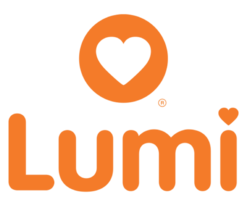
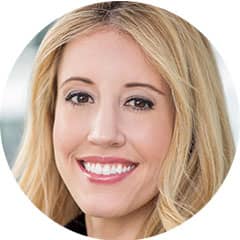 Julia Cheek: Transforming healthcare with at-home lab tests
Julia Cheek: Transforming healthcare with at-home lab tests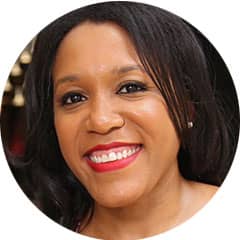 Marguerite Pressley Davis: De-stressing the wedding planning journey
Marguerite Pressley Davis: De-stressing the wedding planning journey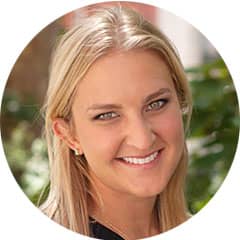 Dorie Smith: Offering high-quality, affordable, stylish clothes for professional women
Dorie Smith: Offering high-quality, affordable, stylish clothes for professional women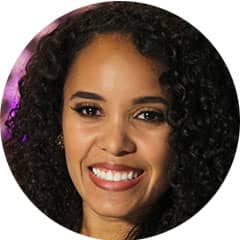 Angelise Hadley: Helping young girls embrace their natural curls
Angelise Hadley: Helping young girls embrace their natural curls








